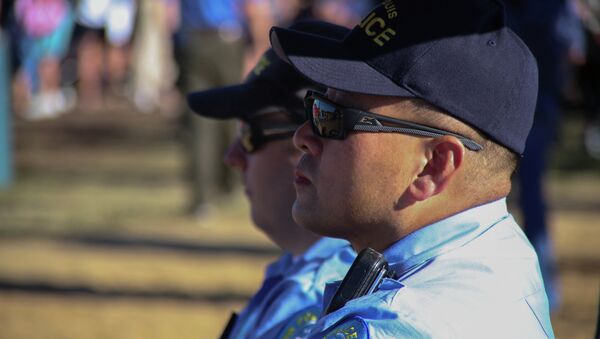Stingrays, also known as cell-site simulators, are shrouded in secrecy as the FBI actively attempts to keep law enforcement quiet on their use of the devices. By mimicking cell towers, the devices are used by law enforcement to determine the locations of cell phone users, as well as intercept phone calls and text messages. The biggest concern surrounding their use among privacy advocates is that they are typically deployed without first obtaining a warrant.
The FBI has stated that the disclosure of information regarding the tool is a matter of national security, and has had local officials drop cases all over the country to avoid officers testifying about their use.
In this case in St. Louis, more than a dozen charges were dropped against three defendants the day before a city police officer was going to face questions about the use of the stingray in the case. Prosecutors maintain the dropped charges are unrelated, but the public defender involved in the case is not accepting that.
The robbery spree left seven people robbed of cash and cell phones, at gunpoint, in less than two hours back in October 2013. One of the victims, Brandon Pavelich, was pistol whipped and required 18 stitches following the incident.
Pavelich told STL Today that he was “shocked” when he was told by prosecutors that the charges had been dropped due to new “legal issues.”
The documents stating that the charges were being dropped cite that the “continuing investigation has disclosed evidence which diminishes the prosecutive merits of this case,” and no further details.
In March, the New York Civil Liberties Union won a lawsuit that they had filed against the Erie County Sheriff’s Office and new documents were released including a nondisclosure agreement from the FBI to the local sheriffs.
“In order to ensure that such wireless collection equipment/technology continues to be available for use by the law enforcement community, the equipment/technology and any information related to its functions, operation and use shall be protected from potential compromise by precluding disclosure of this information to the public in any manner including but not limited to: press releases, in court documents, during judicial hearings, or during other public forums or proceedings,” the document stated.
It mirrored one previously obtained in Minnesota, except in that case the nondisclosure agreement was entirely redacted after “limited to.”
The letter to the Erie County Sheriff’s Department also stated that it would, “at the request of the FBI, seek dismissal of the case in lieu of using or providing, or allowing others to use or provide, any information concerning the Harris Corporation wireless collection equipment/technology, its associated software, operating manuals, and any related documentation (beyond the evidentiary results obtained through the use of the equipment/technology), if using or providing such information would potentially or actually compromise the equipment/technology. This point supposes that the agency has some control or influence over the prosecutorial process. Where such is not the case, or is limited so as to be inconsequential, it is the FBI's expectation that the law enforcement agency identify the applicable prosecuting agency, or agencies, for inclusion in this agreement.”
Similar agreements have also come to light in states such as Florida and Maryland.
There must be some pretty remarkable things left unknown about these devices if the FBI would prefer that local departments drop cases instead of allowing questions about their use.



